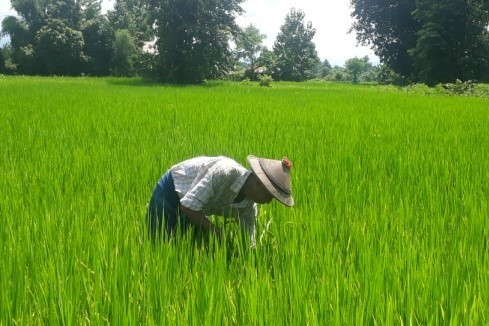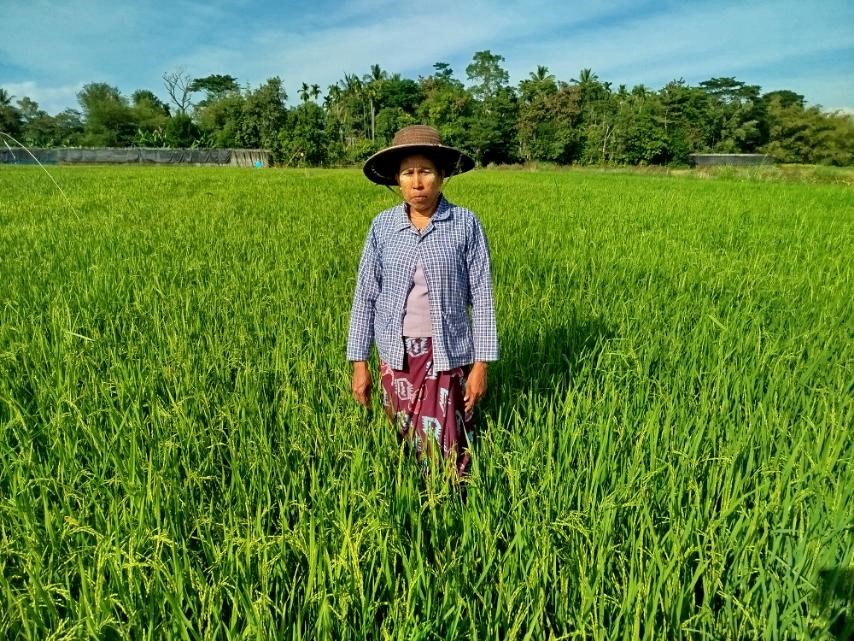Myanmar Nyaungdon
$19,793 needed of $100,000

Implementing Organization
Catholic Relief Services (CRS)
Program Summary
The dual challenges of COVID-19 and political unrest ihave made life difficult for farmers in Myanmar. Even before these challenges arose, agricultural extension services were limited. Since February 2021, those services have completely halted. In addition, challenges with linkages between farmers and market actors means that access to key agricultural inputs as well as opportunities to sell crops at harvest have been limited. Farmers have to figure out the markets by themselves, although many lack access to market information.
In order to address this situation, CRS and local partner KMSS Yangon are helping farmers to build their knowledge of improved cultivation methods that reflect changing weather patterns and natural resource management in order to improve resilience and food security. At the village level, farmer producer groups are being established to improve the access to market information and market engagement. The program is also promoting nutrition-sensitive homestead gardening, which is intended to improve dietary diversity and promote gender-equitable behaviors at the household level.
Success Stories

Empowered Women Farmers Share Their Bounty
Daw Win Aye* is still growing rice and black gram beans … and, now, so much more. The program’s focus on supporting women farmers has made it possible for people like Daw Win Aye to make a living in farming just like the men in the area.
Daw Win Aye has always worked in agriculture, growing rice on her four acres during the rainy season and the beans in the winter. She supplements her income by running a small grocery store and selling ice in her village. She recently accepted an invitation to join a producer group to expand her knowledge of advanced, sustainable farming practices and nutrition.
“After attending training, I realized the importance of quality seeds and biofertilizers, along with judicious use of chemical fertilizer.” She started using high quality rice seeds along with the effective use of herbicides, compost-integrated fertilizer application, regular pest control, and timely harvesting. Her efforts paid off with an increase from 50 to 75 baskets of rice per acre over the previous year.
“I spent the profit on my nephew’s education, family expenses, and community welfare,” she explained, adding that she plans to plant the same seed next year.
Hesitant at first to try growing mushrooms, she now feels a lot of confidence after attending training on ways to diversify her crops and satisfy market demand. Her home garden now contains pumpkin, yard-long beans, and roselle, (Hibiscus sabdariffa), sought after for its anti-hypertensive, anti-inflammatory, and anti-microbial properties.
“Before this, I didn’t grow any vegetables in my garden, but now I don’t need to buy any from the market,” she says. In fact, she shares her surplus with her neighbors.
Her story is a testament to the transformative impact training and support has on women farmers. This focus has not only improved agricultural productivity but enhanced food security, empowered women in other ways, fostered community well-being, and made higher-quality food available for purchase.
Myanmar Nyaungdon Program
Led by Catholic Relief Services and Karuna Mission Social Solidarity (KMSS)
*Name Changed for Security
